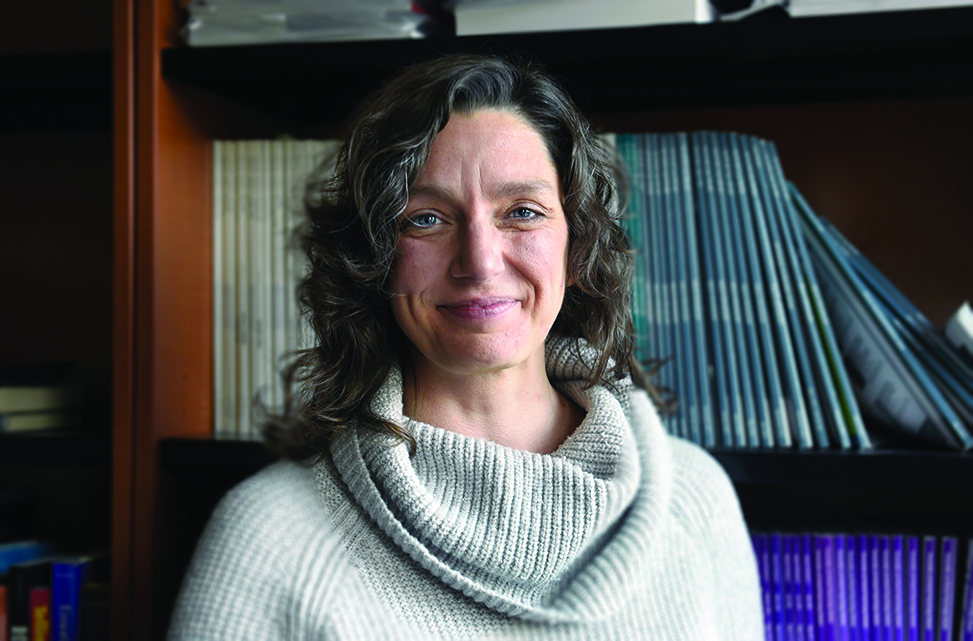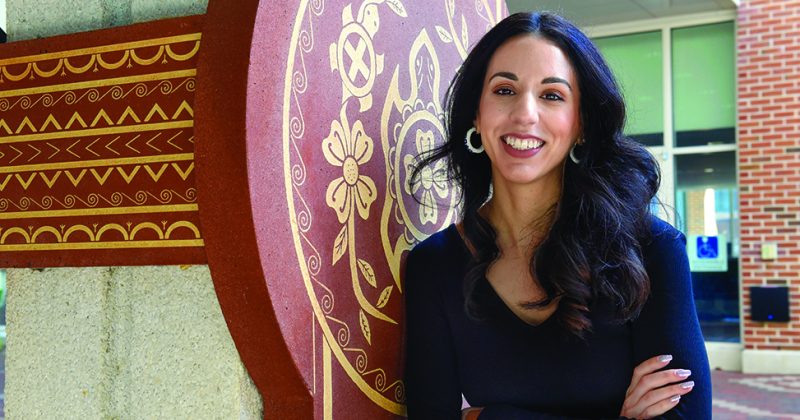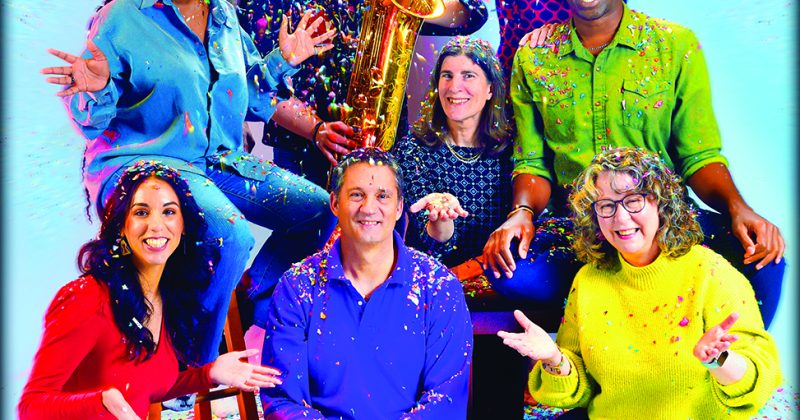
“We have found that people who shared laughter felt more connected than those who did not,” says psychologist Sara Algoe, who studies what makes healthy relationships tick. (photo by Donn Young)
UNC psychologist Sara Algoe and her team are taking a deep dive into what makes couples love, bond and stay happy — together.
Untangling the factors that make relationships work is at the heart of Sara Algoe’s research. Having high-quality relationships with people we care about predicts mental and physical health — even how long we may live.
“Close relationships are linked to longevity to the same degree that smoking is linked to mortality,” said Algoe, a professor of psychology and neuroscience. “We spend billions of dollars trying to get people to stop smoking for better health. We need to also focus on the science behind healthy relationships and how we can help them thrive.”
Algoe directs the Emotions and Social Interactions in Relationships Laboratory. She and her team use relationship science methods to study the effects of interactions between people in real relationships. She cites Jane Goodall’s pioneering work in documenting chimpanzee social behaviors as an inspiration for doing similar work in humans.
“Is it weird to say I’m a people-watcher at heart?” Algoe asked. “I am fascinated by getting into the nuts and bolts of how we find and cultivate our best relationships.”
Her lab analyzes recordings of couples interacting and having conversations and conducts surveys to gather data on what makes healthy relationships tick. They have evaluated how expressing and receiving gratitude, affectionate touch and sharing laughter function sort of like social probiotics to promote healthy relationships.
“In the past, researchers viewed this as frivolous or superficial. A lot of researchers have focused instead on looking at how to mitigate deficits in relationships,” Algoe said. “But all our data shows that these are the essential elements of a good relationship. For the past 10 years, we have been looking at the social behaviors of everyday life that really help us connect with other people.”
Algoe’s work is rooted in her decade old “find-remind-bind” theory of relationships, which posits that gratitude is the glue that holds responsive, interactive couples together over time.
“We and others have now collected an extraordinary amount of data on expressing and receiving gratitude,” Algoe said. “And the thing that always strikes me is how simple it can be. It does not take much to have a big effect on the person who hears it.”
Observing and studying couples has also led to new discoveries. For example, her team noticed that couples waiting to enter her lab often touched. Some even kissed or made out on the couch. That led to research on the role of affectionate touch. Her team also noticed in video recordings that a lot of couples laughed together.
“We theorized that it is the shared laughter that matters — it signals that you see the world in the same way,” Algoe said. “We found that people who shared laughter felt more connected than those who did not share laughter. I call it the mind meld.”
Algoe believes that if relationships bring us joy and health, then scientists should do more to understand the mechanisms of what makes them work. It’s akin to investing in disease prevention rather than focusing solely on a cure.
To this end, Algoe founded The Love Consortium, which links international researchers with the goal of sharing data and promoting collaboration on relationships of all types.
“It’s like a match-making system for researchers and their data sets,” she said. The group met in person in Durham last September. “It was such an intellectual joy to see so many people presenting innovative work on love and to see them inspired and excited about each other’s research. The consortium has truly been my passion project.”
Inspired to participate? Algoe’s lab seeks romantic couples for a new study. Email couplesinteractions@med.unc.edu.
By DeLene Beeland
Sara Algoe writes about the importance of showing gratitude at work in a recent column in The Wall Street Journal.
Published in the Spring 2023 issue | Tar Heels Up Close
Read More

Showcasing Native diversity
Graduate student Marissa Carmi is contributing to research about Oneida…

Behind the scenes: The campaign celebration photo shoot
What does it take to make a great magazine cover?…

UNC-Chapel Hill named top producer of Fulbrights
The Department of State’s Bureau of Educational and Cultural Affairs…

